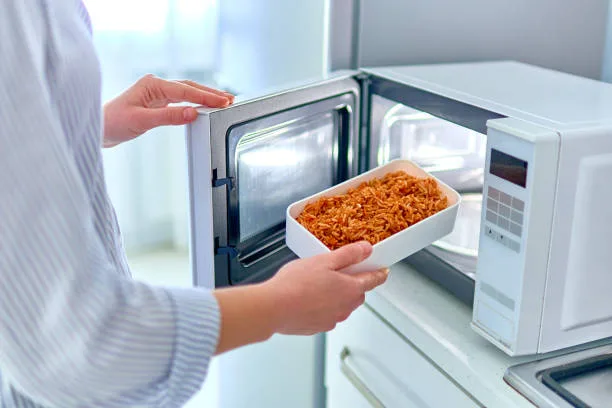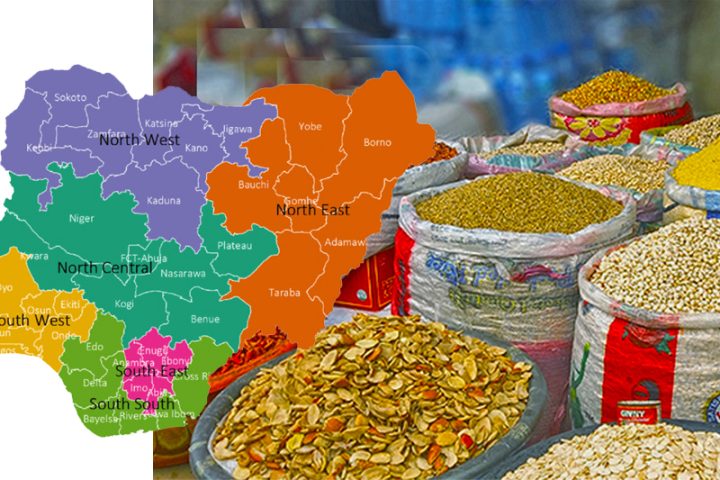Why this habit could be harming your health and fertility
The last thing you want to be stuck doing when you must rush off for work or school is cooking a meal.
Join our WhatsApp ChannelHowever, it’s super easy and relieving to grab a meal cooked last night that was stored in the freezer and quickly microwave it to defrost and heat it while it is in a plastic container.
But what if we told you that this habit, as convenient as it might be, could be highly detrimental to your health, even leading to fertility problems, among others?
While this might be hard to believe, there’s proof from experts that microwaving food in plastic containers can harm your health in ways you may not even realise.
Let’s tell you all we know about this common practice and break down the dangers in simple terms that you can understand.
Why Microwaving Food in Plastic Containers is Harmful To Your Health
If anybody is going to ask us to give up a long-standing habit, especially one that is quite useful, then they will surely have to provide enough convincing reasons to get us to do that. And that’s exactly what we are here to do.
When it comes to storing food and eating food, plastic containers can come in very handy and we are not against that.
In fact, if you don’t have storage plastic containers in your home, then you should consider getting them, as they are lightweight storage facilities.
But then, plastic containers don’t do quite well with heat. Apart from the fact that they are obviously flammable, plastics are made with chemicals such as bisphenol A (BPA).
Okay, that’s just a big English word that probably doesn’t concern you. However, we know for a fact that you’d be quite interested in what it does.
You see, BPA is a colourless solid chemical compound. The thing with BPA is that it can be a very generous chemical.
This is because it does the job of transferring itself off plastics when heated. And what happens when you put your food in a plastic container in the microwave? It gets heated, of course.
READ ALSO: Stampedes, Hunger, And Distractions: Nigeria’s Looming Crisis
During this process, BPA is broken down from the plastic container and released into your food. Also, remember that we mentioned that BPA is colourless, right?
This means that it’s not even something that you can spot and pick out from your food, like stones from beans.
How then does the chemical getting into your food affect you? We’re sure that if you were handed food with visible chemicals in it, the last thing you might want to do is eat it, even if a huge sum is attached to it.
This might probably be so because you’d be bothered about the adverse effect consuming that meal will have on your health.
It’s the same with BPA, and this time, we know what it does to you.
- BPA has been linked to serious health risks, including hormonal imbalances and infertility.
- BPA mimics estrogen in the body and disrupts normal hormone functions. Over time, this can affect fertility in all genders.
- The World Health Organisation (WHO) has also flagged BPA as a potential health hazard, especially for children and pregnant women.
Usually, plastics made without chemicals like BPA should be labelled “microwave-safe,” which is usually not so. Therefore, to be safe, it’s better to transfer your food to a glass or ceramic plate before you microwave it.
Does Microwaving Plastic Increase Cancer Risk?
Apart from causing hormonal dysfunction, research also shows that certain plastics release carcinogens (cancer-causing substances), like BPA, when exposed to high heat. Here are other reasons why:
- These carcinogens can mix with your food and, over time, increase your risk of cancer.
- The National Cancer Institute warns that prolonged exposure to these harmful substances is a concern, especially when using non-microwave-safe plastics.
- Takeaway containers and shopping bags were not designed to withstand heat and are harmful to the human body when used under heat.
Other Damages Plastic Containers Could Have on Your Health
Apart from causing cancer, plastic containers can also harm your reproductive health when heated.
Experts, including fertility specialists in Nigeria, have raised concerns about phthalates, another chemical commonly found in plastic.
Phthalates are added to plastics to make them flexible, but when heated, they can seep into food. Studies have shown that high levels of phthalates in the body can damage sperm quality in men and affect egg development in women.
Like BPA, this chemical is a silent killer that only requires a trigger—microwave food in plastics made from them.
To be on the safer side, then it’s best to avoid microwaving food in plastic to protect your fertility and overall health.
What You Should Do Instead of Microwaving Food in Plastic Containers
Regardless of how easy and convenient warning food in plastic containers in the microwave is, safety is paramount.
Therefore, how do you stay safe and avoid being at the mercy of dangerous chemicals? Here are our few ideas:
- Use glass or ceramic containers; these materials don’t leach chemicals when heated.
- Check for microwave-safe labels and only use plastics that are labelled as microwave-safe.
- Avoid reheating fatty foods in plastic, as oils and fats tend to absorb chemicals more easily.
- Use quality food storage options such as stainless steel and glass containers. These may cost more but they last longer and are safer.
Conclusion
Before you brush this off as one of those health warnings that you can just ignore, after all, you’ve been using plastic containers to microwave food for a very long time; remember how expensive things are right now, including health care.
While you might not have been a victim of the disadvantages mentioned here, that doesn’t make them less of a danger to you.
Don’t start the new year spending on a health issue that could have been avoided. So start disposing of those plastic containers or using them for something else other than to microwave your food. This will go a long way to protect you and your family from unnecessary risks.
Elsie Udoh is an SEO content writer who specialises in writing engaging stories that resonates with diverse audiences. She studied mass communication at the Lagos State University.


















